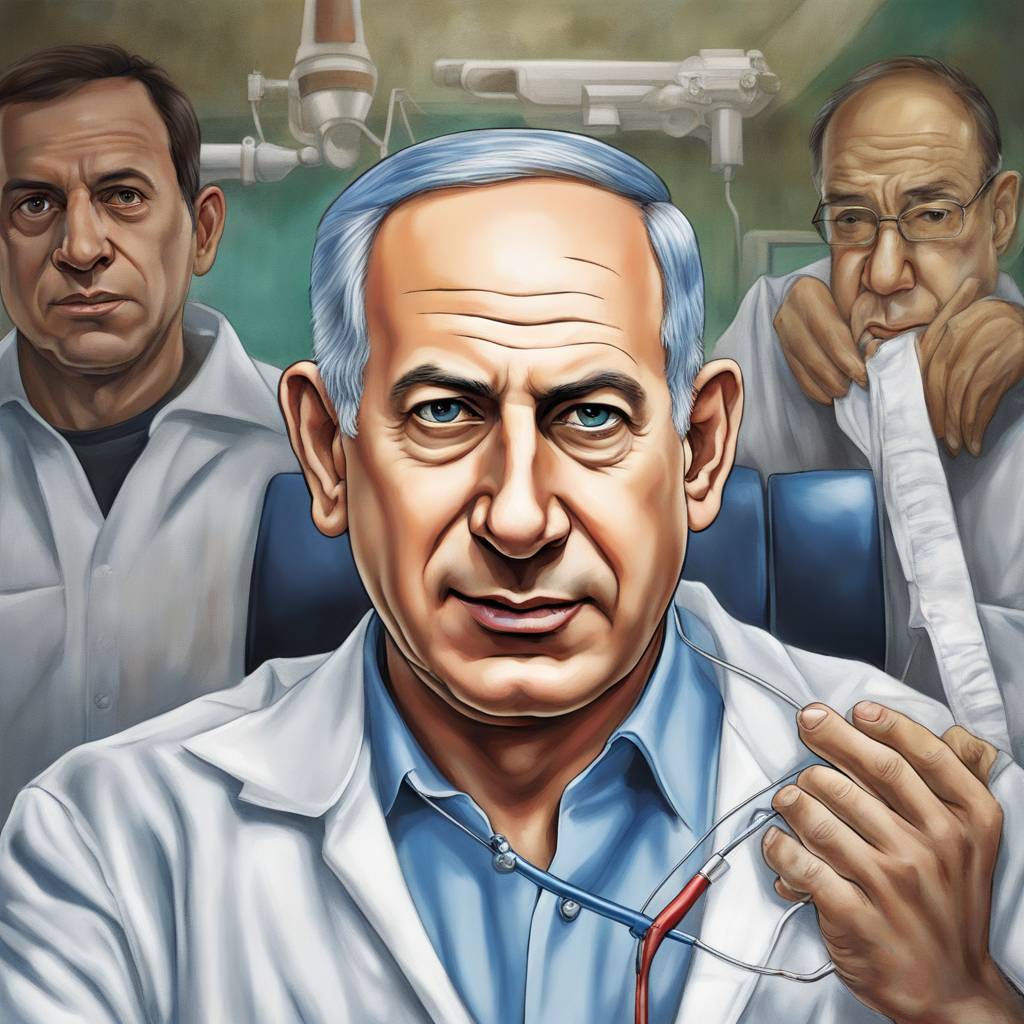Prime Minister Benjamin Netanyahu of Israel will undergo surgery for a hernia on Sunday night, his office has announced. The operation comes at a time when Netanyahu is facing mounting pressure amidst the ongoing war in Gaza and growing international calls for a cease-fire. The hernia was discovered during a routine examination on Saturday night, and the surgery will be performed under full anesthesia on Sunday evening. Justice Minister Yariv Levin, a member of Netanyahu’s Likud party, will temporarily take over the prime minister’s duties during his recovery.
Criticism of Netanyahu’s handling of the war in Gaza has been increasing, both internationally and domestically. Allies like the United States have expressed concern over the high civilian death toll in Gaza and have urged Israel to allow more aid into the area. In Israel, protesters have been calling for Netanyahu to prioritize the release of hostages in Gaza and negotiate a cease-fire. The war cabinet is expected to meet on Sunday to discuss cease-fire negotiations, although it is unclear if Netanyahu will be able to attend.
Despite the impending surgery, Netanyahu met with families of soldiers held captive in Gaza just hours before the operation. The prime minister is also facing pressure from his far-right coalition partners who are critical of any perceived hesitancy on his part in dealing with Hamas or expanding Israeli settlements in the West Bank. The surgery has come at a particularly challenging time for Netanyahu, with multiple fronts of criticism impacting his leadership.
The hernia surgery will temporarily sideline Netanyahu at a crucial moment in the ongoing conflict in Gaza. With the war cabinet set to convene to discuss cease-fire negotiations, Netanyahu’s absence could have significant implications. However, with Justice Minister Levin temporarily taking over his duties, the government will continue to function in Netanyahu’s absence. The prime minister’s health condition will impact his ability to respond to increasing pressure both domestically and internationally over the war in Gaza.
Netanyahu’s surgery comes as Israel faces heightened scrutiny over its actions in Gaza, with calls for a cease-fire growing louder. The prime minister’s handling of the conflict will be closely watched, as criticism of his leadership continues to mount. The concerns of allies like the United States, as well as domestic protests in Israel, are putting pressure on Netanyahu to navigate a path toward peace in Gaza. How he responds to these challenges in the aftermath of his surgery will be crucial in determining the direction of the conflict.
As Netanyahu undergoes surgery and recovers, the political landscape in Israel remains turbulent. His absence from the war cabinet meeting and the ongoing conflict in Gaza will test the government’s ability to navigate these challenging times. The demands for action on the war and humanitarian crisis in Gaza, as well as pressure from coalition partners on settlement expansion, will continue to shape the political environment in Israel. Netanyahu’s leadership and response to these challenges post-surgery will be closely scrutinized as the conflict in Gaza unfolds.


